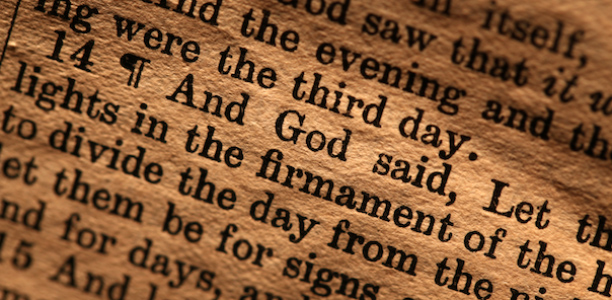By David Faust
 Jesus never said, “Blessed are the powerful.” However our culture persistently communicates the message, “Assert yourself. Be the boss. Climb the ladder. Make a name for yourself.” The account of King Uzziah in 2 Chronicles 26 cautions us about the perils of personal power.
Jesus never said, “Blessed are the powerful.” However our culture persistently communicates the message, “Assert yourself. Be the boss. Climb the ladder. Make a name for yourself.” The account of King Uzziah in 2 Chronicles 26 cautions us about the perils of personal power.
God made him successful. Precocious in his youth and prosperous in his old age, Uzziah became king at age 16 and ruled in Jerusalem for 52 years (v. 3). Early on “he did what was right in the eyes of the Lord” (v. 4). And “as long as he sought the Lord, God gave him success” (v. 5). His land produced abundant crops, “for he loved the soil” (v. 10). He had a well-equipped army—“a powerful force to support the king against his enemies” (v. 13). All of this earned Uzziah a stellar reputation. “His fame spread far and wide, for he was greatly helped until he became powerful” (v. 15).
Power made him prideful. Here’s where the story takes a sad turn. “But after Uzziah became powerful, his pride led to his downfall. He was unfaithful to the Lord his God” (v. 16).
Pride made him overconfident. Sometimes a person who gains success in one area assumes he can accomplish anything he undertakes. Uzziah overstepped his rightful authority as king and tried to take on duties that belonged only to the priests. He “entered the temple of the Lord to burn incense on the altar of incense” (v. 16). Blinded by pride, he acted like the normal rules didn’t apply to him.
Confrontation made him angry. A group of more than 80 courageous priests recognized the king’s folly and followed him into the temple. “They confronted King Uzziah and said, ‘It is not right for you, Uzziah, to burn incense to the Lord. That is for the priests . . . . Leave the sanctuary, for you have been unfaithful’” (vv. 17, 18). Wise people listen to godly advice, even when it comes as a rebuke. However, “Uzziah, who had a censer in his hand ready to burn incense, became angry” (v. 19). Instead of listening to wise counsel, he raged against those who dared to confront him with the truth.
God brought him down. After a half century of success, Uzziah’s fortunes took a sudden turn. “While he was raging at the priests . . . leprosy broke out on his forehead. When Azariah the chief priest and all the other priests looked at him, they saw that he had leprosy on his forehead, so they hurried him out. Indeed, he himself was eager to leave, because the Lord had afflicted him” (vv. 19, 20).
Verse 21 mentions four results of Uzziah’s disobedience: 1—He lost his health and “had leprosy until the day he died.” 2—He lost his home and “lived in a separate house.” 3—His ability to worship was hindered, for as a leper he was “banned from the temple of the Lord.” 4—He lost his influence and authority as king. “Jotham his son had charge of the palace and governed the people of the land.” All of this tarnished Uzziah’s reputation, and when he died his sad epitaph was mainly this: “He had leprosy” (v. 23).
Power comes with a warning sign: “Handle with care.” Like dynamite, power can clear the way for progress or it can blow up a person’s life. Remember, “God opposes the proud but shows favor to the humble” (James 4:6).
David Faust serves as the Associate Minister at East 91st Street Christian Church in Indianapolis, Indiana.
The Lookout’s Bible Reading Plan for July 26, 2015
Use this guide to read through the Bible in 12 months. Follow David Faust’s comments on the highlighted text in every issue of The Lookout.
Luke 11:29-36
2 Thessalonians 1:1-7
Psalm 144
2 Chronicles 17–19
Luke 11:37-54
2 Thessalonians 1:8-12
Psalm 145
2 Chronicles 20, 21
Luke 12:1-12
2 Thessalonians 2:1-12
Psalm 146
2 Chronicles 22–24
Luke 12:13-21
2 Thessalonians 2:13-17
Psalm 147
2 Chronicles 25–27
Luke 12:22-34
2 Thessalonians 3:1-5
Psalm 148
2 Chronicles 28, 29
Luke 12:35-48
2 Thessalonians 3:6-13
Psalm 149
2 Chronicles 30–33



Comments: no replies